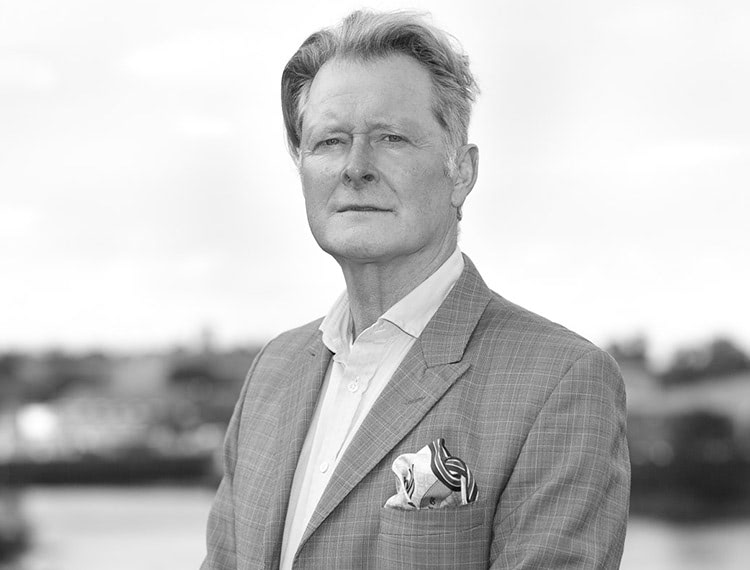“It’s Time To Stop Talking About Recovery!”

A year on from the first lockdown, is it now time to stop talking about recovery?
Because what if nothing is different when the surge cedes, the waves abide and fewer and fewer of us are touched by this remorseless virus?
I have written in another recent piece how the brain is hardwired towards a negativity bias.
A bias that means we react more viscerally to bad news and leads us to fundamentally misrepresent the world around us, believing it to be significantly worse than it really is
The brain is most complex organisation of matter that we know of in the universe. With more neurons and synaptic connections than stars in the Milky Way, it is truly a wonderful thing.
Yet day-in and day-out we are assailed by what the WHO identified back in 2011 as a modern plague i.e. noise pollution – Activating the brain’s amygdala , causing the release of Cortisol and raising our stress levels.
And over the past 12 months plus we have had a global pandemic to contend with too, with stark increases in levels of depression, stress and anxiety.
We’re on over-load!
Crisis Fatigue
I also wrote in another recent article that the focus in the latest lockdown has shifted over the past few months to what we can’t do, accompanied by a dawning realization that if not for keeps, the current situation might at the very least go on for a long time.
So, we have become increasingly curmudgeonly, weary, resigned. Motivation has dwindled, energy flat-lined, our confidence zapped and those happy bedfellows, purpose and resolve, have packed their bags and upped-sticks.
Are we now up for doing what needs to be done? To do the thinking that needs to be thought. To find the language that we now need to craft, understand and use to find our way through the granularity of this crisis and move beyond.
And to make the choices and take the decisions that now we must?
Decision Time?
“You cannot look twice at the same river, for fresh waters are ever flowing in”
Heraclitus of Ephesus is known for his doctrine of change being central to the universe. He believed that there is a rational reason for all things and that this impacts the order of the Universe.
Viewed in this context the current pandemic is rational. A natural phenomenon. One in a long and incessant line of pandemics that we have had to find a way to live with and endure over time, because they are the rule, not the exception!
And this virus is doing what any virus will do – It’s mutating, this is part of its natural life cycle, and “Ill-informed discussions of mutations thrive during virus outbreaks” which is exactly what we’re seeing with SARS-CoV-2.
Mutations aren’t necessarily a bad thing though, and can lead to a weaker virus, or be so slight that there’s no noticeable difference in the disease’s transmission and fatality rates.
Don’t lets lose hope and wallow too long in that “slough of despond.”
Science can enrich our understanding of our complex world, it cannot tell us right from wrong, so as the virus stems from nature, perhaps the inspiration and direction for our way back can be found in nature too. Through regeneration and regrowth, rather than recovery.
Using our natural ability to endure, survive, innovate and create a new tide of possibilities to be taken on the flood.
A Time When life Springs back
“Happiness lies in the cultivation of the garden” Voltaire
There’s something about the advent of Spring that puts to mind thoughts of wellness and wellbeing, of growth, regrowth and renewal.
A time when days get longer. The sap rises.
Our footings are refreshed. A new vibrancy and vitality abounds. Things sparkle.
A Clematis armandii flowers and we notice a scent of marzipan, just there, hanging in the air as we pass.
And in Europe birds that have migrated south in the Autumn escaping the bitter conditions further north, depart signalling the end of winter.
So, a ceaseless landscape of possibilities unfolds for reimagining, redoing, and rebecoming, as we move beyond winter’s rain and ruin, and into a season of endings and more importantly beginnings.
A time to look forward with optimism. A time which the Russian American novelist Valdimir Nabokov once described as, “nostalgia in reverse.” – A longing for something fresh, new, different that grows especially strong in Spring!
Change Is Central To The Universe
“The barrier to change is not too little caring, it’s too much complexity.” Bill Gates
Change may feel like a bowl of jelly without the bowl, quivering, wobbling, wibbling, to maintain some sense of shape and form.
But it is a constant.
This has never been the time for short-termism, or quick fixes which are never certain to be the right fixes when nothing is certain.
Things may feel too overwhelming, complex and difficult, but COVID_19 is nothing if not a catalyst for change that can cancel out inertia, or the tendency to revert to a ‘business as usual’ attitude.
And it may feel that we make it up as we go along, but that is the nature of reality and this reality will change shape and meaning because of what we now do.
In a piece written on the 4th July 2020 I described the three psychological phases of a crises – Namely:
- The Emergency phase
- The Regression Phase, &
- The Recovery Phase
However, in that piece I also asked whether we needed another phase added into the mix and this was a Reinvention Phase. A phase before Recovery where we could stop, restart and create a new day one. A new beginning. A new story.
I want now to go a step further – In fact, I want to suggest that to talk of Recovery, is misleading because it implies that maybe we’re expecting things to simply return to how they were. So, we cling onto to what we’ve known because it’s way too difficult to let go. Or, we just can’t let ourselves believe that things can be different, or dare we even say it, better.
So, Regrowth Not Recovery
“The difficulty lies not in the new, but in escaping the old” John Maynard Keynes
Existing problems are locked into old language. This shapes prevailing thought, but we can’t let the limits of our language be the limits of our world.
Perhaps it’s time for a new realism which would be better served by creating and using a new and different language – Namely, one of Regrowth.
The word Recovery and what that implies, is not the right way to approach, make sense of, and now move forward and beyond our current circumstances.
Some things are just not going to be recovered, and it will be so many of those things we only all too recently loved and enjoyed that will no longer be available.
They will be lost to us or are already lost to us forever.
Of Divine Proportions
“I saw a medley of haphazard facts fall into line and order…but it’s true, I saw for myself, it’s very beautiful and it’s very true.” C P Snow
Have you ever looked at a pencil and wondered why it doesn’t roll off the table?
It’s because it’s hexagonal, which also makes it easier to hold.
Hexagons are everywhere. They are one of the most efficient geometrical shapes that can cover a curved surface.
A beehive is a mass of hexagons tightly packed together, with each hexagon because of its shape providing the optimum packing efficiency.
A bubble raft – The array of bubbles packed together at the surface of soapy water is predominately made up of hexagonal shaped bubbles, making it all the better for as many bubbles as possible to sit together.
Snowflakes are hexagonal too.
The rectangle within a Hexagon is based on the square root of 3, and the ‘Golden Ratio’ or ‘Golden Number’ 1.618 is found not just throughout nature, but also in art, architecture and design.
It is considered one of the core principles of aesthetic beauty, and Renaissance artists called it, ‘The Divine Proportion’.
Think Hexagon
Hexagons are all around, and to Break, Create & Transform we need to focus on Regrowth, rather than Recovery.
Regrowth rooted in You, Me, I, We. We all need to be Agents of Regrowth!
And Regrowth with the resilience, exactness, practicality and strength of a Hexagon. But also, with a suppleness, pliancy and agility that can work with the jagged edges of the complexity we face.
So, in this new Spring of 2021 let us start:
- Having Conversations – That change the way we talk about the world, in order to change the way, we see the world. For example, when a CEO wants to transform a company, they must first change the language of that company. And every conversation will have its time and its place because, as in nature “How many things by seasons are season’d, to their right praise and true perfection.”
- Recognising – That people are only interested in what they are interested in, so as we lead with compassion we must also listen with compassion, practice really listening and not only hear what we want to hear.
- Thinking Differently – To cohere, challenge the unchallengeable, avoid the ‘easy answers’ trap, gain crucial insights about what is possible, and create a new and courageous landscape; &
- Building A New Architecture – With a new realism and compassion, think relationships, think community, and think networks to translate that landscape of possibilities into new and enduring patterns of organisation (verb).
This is now the time to find a new way to think about everything, so we must not let the most thought-provoking thing in these thought-provoking times be that we are still not thinking!
And –
“When that April, with its showers sweet, the drought of March hath pierced to the very roote and bathed every vine in such liquor of which virtue engendered is the flower.” Geoffrey Chaucer, General Prologue, The Canterbury Tales, circa 1387.
What Next
the Mudd Partnership has recently launched Think Hexagon ©, a revolutionary new coaching programme that recognises that problems are locked into old language and this can be the greatest obstacle to understanding and action. It represents the opportunity to have a different dialogue, with fresh words. To recognise patterns of organisation, work with the granularity of issues, gain crucial insights, create a new landscape of possibilities and lead with compassion. Appreciating the boundaries as well as the interdependencies & the flow playing out between these, and develop a new and congruent architecture for behaviours, wellbeing and transformation.
A short video providing further information will be available from early May 2021, together with client testimonials.
Paul Mudd is a Trusted Adviser, Leadership Provocateur, Savvy Thinker, International Keynote Speaker, Best Selling Mindfulness Author, Global Well Being & Well Doing Influencer, & Co-Founder and Director of the Mudd Partnership











Responses